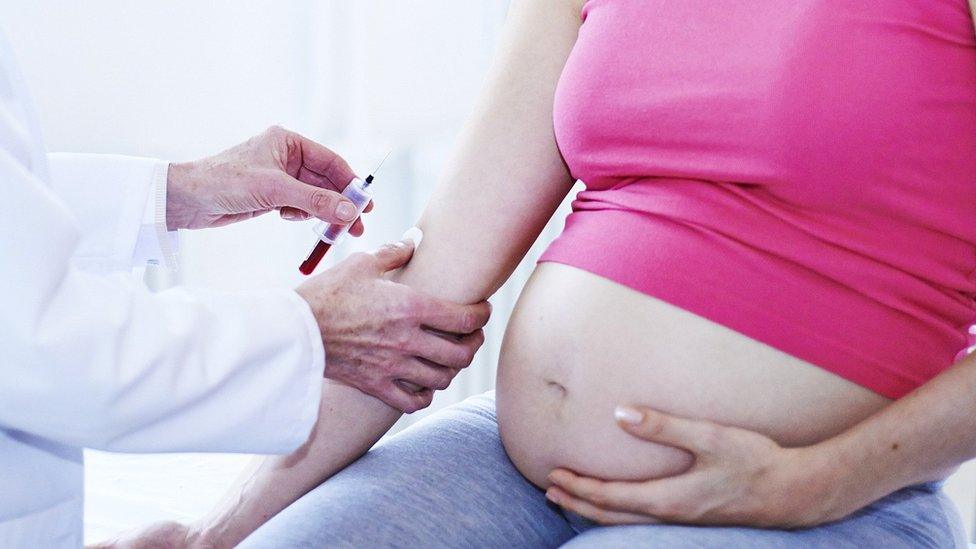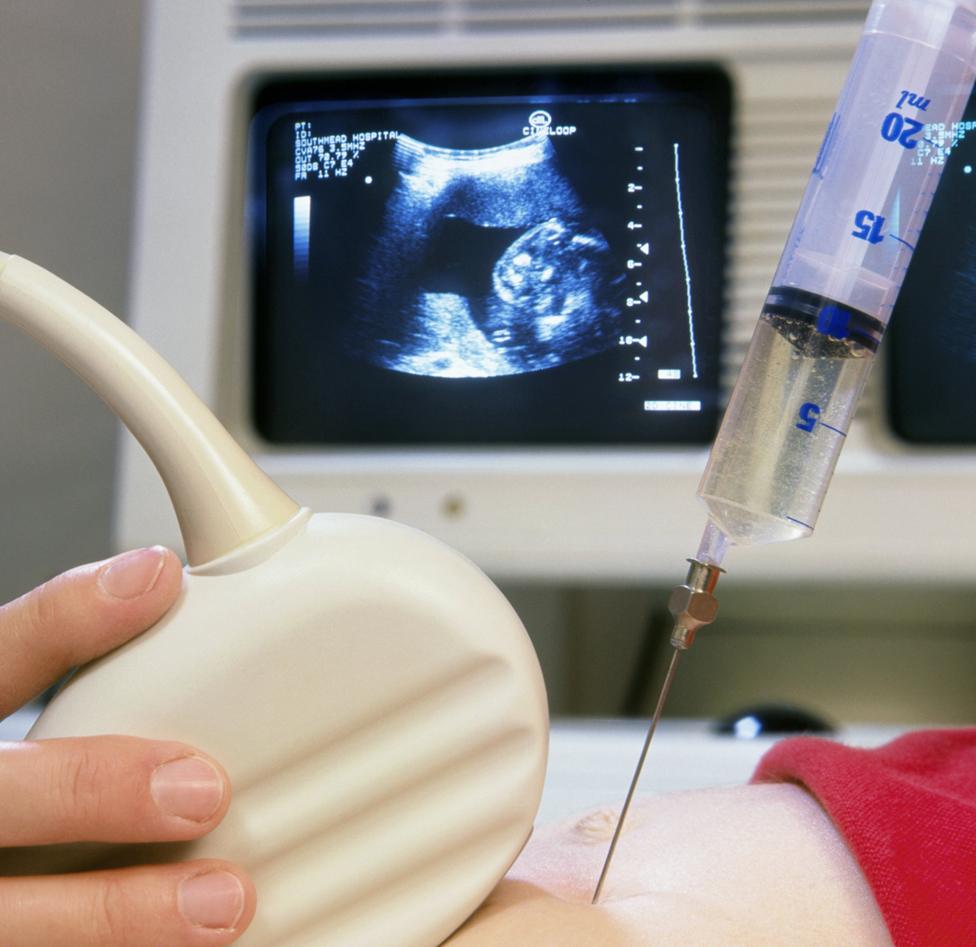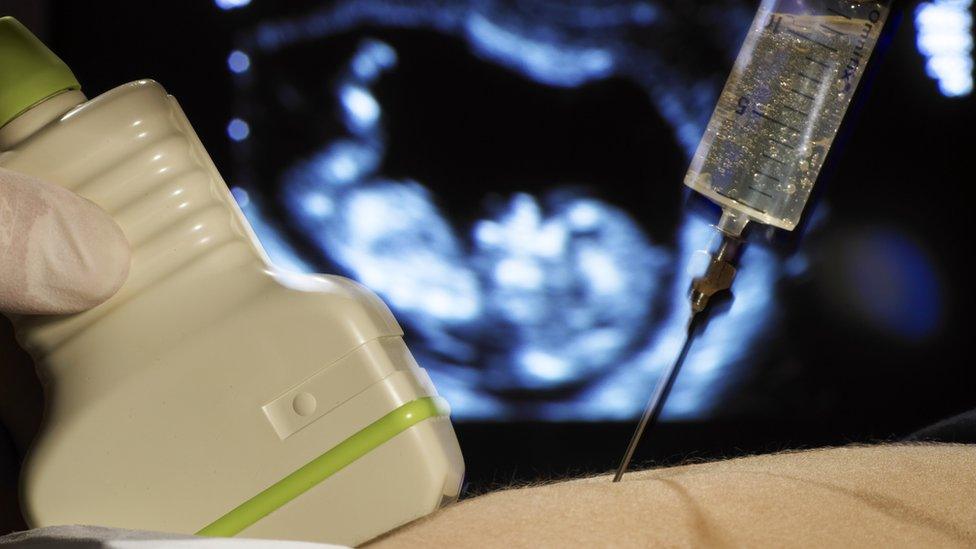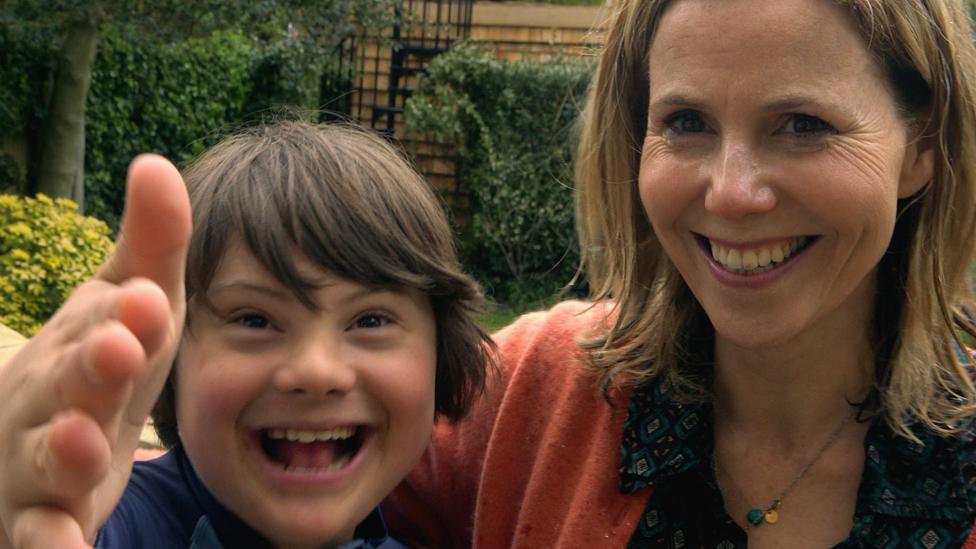Fewer Down's syndrome terminations in Scotland
- Published

Fewer Scottish women are terminating pregnancies following a Down's syndrome diagnosis, according to research.
The rate of pregnancies ended after tests showed chromosomal abnormality for the condition was said to be 85.2% by 2011 compared to 97.3% in the 1990s.
The Scottish Learning Disabilities Observatory (SLDO) study followed debate over whether a new prenatal test might lead to a rise in terminations.
Researchers said the findings might reflect changes in attitudes.
Prof Anna Cooper, director of the Glasgow University-based SLDO, said: "These findings are important because they potentially reflect positive changes in attitudes towards people with Down's syndrome, and others, in Scottish society."
A new, non-invasive prenatal blood test (NIPT) has been backed for use by the NHS, raising a range of ethical issues.
The test is expected to cut the number of women who go through riskier diagnostic tests in pregnancy that can cause a miscarriage.
Last year, a BBC documentary presented by actress Sally Phillips - who has a son with Down's syndrome - considered "A World without Down's".
In the programme, she gave the example of Iceland, where almost all pregnancies are screened for Down's and the termination rate is 100%.
However, the SLDO study suggested this trend was not being reflected in Scotland.
It claimed women in Scotland were less likely to end a pregnancy after the diagnosis than those in England and Wales, where the rate is 90.1%.
Lower screening rates
Sue Buckley, of Down's Syndrome Education International, welcomed the apparent decrease in terminations in Scotland.
However, she said it remained important to raise the ethical issues surrounding the new test.
Speaking on BBC Radio Scotland's Kaye Adam's Programme, she questioned the Scottish figure of 97.3% in the 1990s from a previous study.
She said this may have been skewed by a small sample size and lower screening rates.
She said: "In England and Wales, where we keep very good data, it's been stable at between 90 and 91%.
"You have to look at the data very carefully.
"I believe there's only around 60 babies born annually in Scotland with Down's syndrome, so we're not looking at large numbers."

Amniocentesis is usually guided by ultrasound
Down's Syndrome Scotland said: "We cautiously welcome these results but note that they cover the period 2000-2011 and would hope that a further study could be conducted, when data is available, to ascertain if this trend is continuing.
"We are delighted that people with Down's syndrome are now more visible in society today and welcome the inclusion agenda, policies and practices within Scotland."
The organisation added that it was also pleased to see children with Down's syndrome going to mainstream schools.
The latest research was based on the results of all 26,261 prenatal invasive tests in Scotland between 2000 and 2011.
'Informed decisions'
It found that 92% of the tests showed no foetal abnormality, while 5.6% were diagnosed with chromosomal anomalies, most commonly Down's syndrome.
Prof Cooper said: "As the NHS moves towards implementation of further non-invasive testing for Down's syndrome, disabled peoples' organisations and parents have argued for a greater consideration of the ethical dimensions of policy.
"Studies such as this show that the decision to terminate is informed by a range of factors, and good-quality information should be available to enable parents to make informed decisions."
The Nuffield Council on Bioethics has been considering ethical issues surrounding the new test.
It has warned that some of the private clinics which currently offer the procedure do not offer enough advice and support.
- Published1 March 2017

- Published29 September 2016
